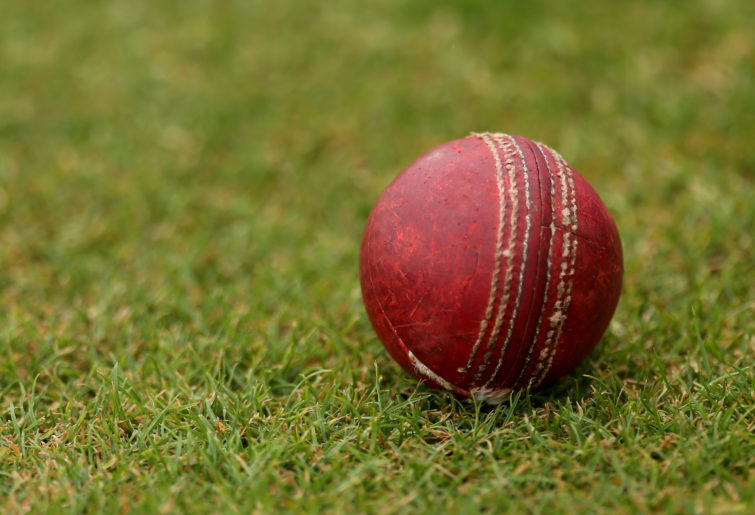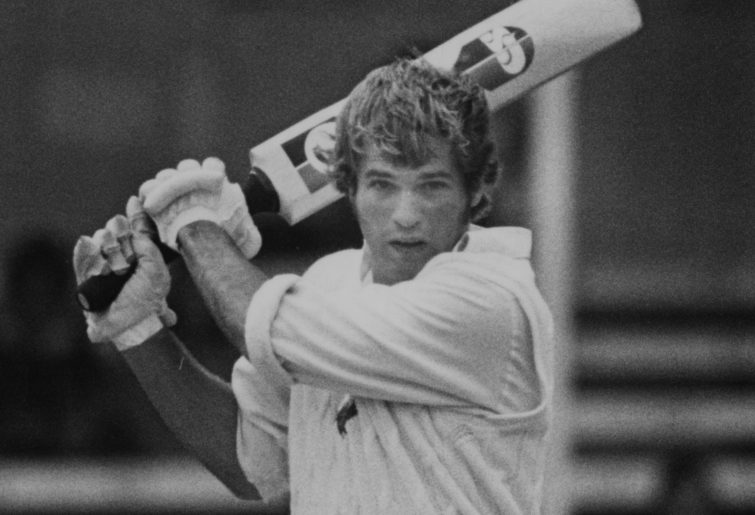For my fellow cricket lovers on The Roar, here are some composite international figures of selected great South African players from the 1970s and ’80s.
Barry Richards (born 1945) – 27 internationals, average 55.56, 207 high score, six centuries, four official Tests
Richards’ average is probably about right. He tailed off, averaging just 28 in six rebel Tests at the end of his career. But look at all the great recent Test batsmen who hung around too long and saw their averages plummet. He did average a phenomenal 79 in five World Series Cricket matches. Note that Richards and Graeme Pollock both shade Jacques Kallis, but from many fewer internationals.
Graeme Pollock (born 1944) – 53 internationals, 55.53 average, 274 high score, 15 centuries, 23 official Tests
Pollock’s average has come down, but over a long career, that is probably accurate. Pollock only averaged 35 in eight rest of the world matches and 35 in six other matches. But in the early ’70s his form suffered as he transitioned from wearing glasses to contact lenses, and it took a while for him to adjust.
Eddie Barlow (born 1940) – 44 internationals, 45.62 average, 211 high score, ten centuries, 80 wickets, 28.29 average, 7-64 best, four five-wicket innings, 30 official Tests
He is one of my favourite cricketers, a whole-hearted competition and a genuine all-rounder. His batting average is probably close to accurate. He was a boom-or-bust, hit-or-miss kind of batsman. He was an outstanding pace bowler in first-class cricket, but had fewer opportunities at Test level.

(Steven Paston – EMPICS/Getty Images)
Mike Procter (born 1946) – 21 internationals, 31.59 average, 66 high score, 83 wickets, 18.58 average, 6-73 best, two five-wicket innings, seven official Tests
Procter’s batting average is disappointing and unreflective of his genuine batting ability. I have no doubt, given a similar career, he was the equal of Imran Khan with bat and ball. His bowling average below 20 is nevertheless phenomenal. He was a miserly bowler, giving away few runs.
Clive Rice (born 1949) – 24 internationals, 26.27 average, 97 high score, 47 wickets, 24.67 average, 4-19 best
Rice’s stats are also underwhelming. I would consider him a six-to-eight-point better batsman, and more likely averaging 2.5 wickets a Test. He was incredibly unlucky not to play official Test cricket. He certainly belonged.
Vintcent van der Bijl (born 1948) – 13 internationals, 24.83 average, 50 high score, 61 wickets, 20.20 average, 5-25 best, four five-wicket innings
At the time of his retirement in the early ’80s, he was the most prolific bowler in South African domestic cricket. He topped the annual Currie Cup wicket tally for about a decade. Broken down to a five-Test series, he would have grabbed 23-24 wickets per series. He had outstanding consistency. He had the same imposing physique and bowling style as the Windies’ Joel Garner. His high batting average is courtesy of ten not outs in 16 innings.
Garth le Roux (born 1955) – 18 internationals, 15.19 average, 45 high score, 76 wickets, 21.62 average, 6-55 best, four five-wicket innings
Le Roux was a revelation when he played World Series Cricket. He continued this outstanding form in a further 15 rebel Tests.
Lee Irvine (born 1944) – 11 internationals, 39.00 average, 125 high score, two centuries, four official Tests
An international schoolboy contemporary of both Richards and Procter, Irvine was a hard-hitting left-hand batsman and semi-regular keeper. He was a very handy player to have in your team.
Kepler Wessels (born 1957) – 50 internationals, 41.86 average, 179 high score, nine centuries, 24 official Tests
Wessels had one of the most intriguing and fascinating international careers. It began in South Africa, and moved to Australia before returning to South Africa. He began with a match for the President’s XI in 1975-76, followed by four matches for Australia in World Series Cricket, 24 Tests for Australia, four rebel Tests for Australia, one rebel Test for South Africa, then 16 Tests for South Africa in which he was captain.

(Photo by Evening Standard/Hulton Archive/Getty Images)
Jimmy Cook (born 1953) – 22 internationals, 38.56 average, 169 high score, three centuries, three official Tests
Cook was one of two players to appear in all 19 rebel matches in the ’80s, the other being Peter Kirsten. Test cricket came too late for him, playing his three Tests at age 38 and 39.
Peter Kirsten (born 1955) – 32 internationals, 35.90 average, 173 high score, four centuries, 12 official Tests
An older half-brother to the excellent Gary, Kirsten played all 19 rebel Tests, along with Cook. Like Cook, Tests came late to him at age 37, but he managed 12 Tests, including a century.
Adrian Kuiper (born 1959) – nine internationals, 21.33 average, 81 high score, 18 wickets, 21.78 average, 5-50 best, one five-wicket innings, one official Test
An aggressive lower-order batsman and bustling fast-medium bowler, Kuiper was Wessels’ vice-captain for the 1992 Cricket World Cup and the following one-off Test against the Windies.
These are some others who appeared exclusively in rebel Tests.
Alan Kourie was a spinning all-rounder who was apparently as boring to watch as Ken ‘Slasher’ Mackay, but he was effective. His bowling was just adequate. His stats were 16 matches, 23.94 average, 69 high score, 38 wickets, 33.90 average, 6-55 best, and three five-wicket innings.
Ray Jennings was the outstanding keeper in the republic in the ’80s, but an ordinary batsman. He played 14 rebel Tests, with Dave Richardson appearing in the other five. His stats were 14 matches, 14.93 average, 46 high score, 46 catches and four stumpings.
Steve Jefferies was a lively left-arm fast bowler and dangerous lower-order bat, just below genuine all-rounder class. His stats were 11 matches, 27.87 average, 45 high score, 39 wickets, 29.82 average, and 4-58 best.
Ken McEwan may be remembered for playing three seasons in WA from 1979 to 1982. He was a handy batsman and occasional wicketkeeper. His stats were seven matches, 43.80 average, 138 high score, and two centuries.
Most appearances in rebel Tests, 1982-89
19. Jimmy Cook, 19. Peter Kirsten, 18. Clive Rice, 16. Graeme Pollock, 16. Alan Kourie, 15. Garth le Roux, 14. Ray Jennings, 11. Steve Jefferies, 8. Adrian Kuiper, 8. Henry Fotheringham, 7. Ken McEwan, 7. Kevin McKenzie, 7. Hugh Page, 6. Barry Richards, 6. Vintcent van der Bijl, 6. Rupert Hanley.
I trust you enjoyed this.






























































































